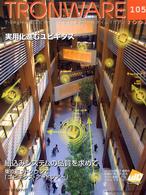Full Description
This book serves as an introduction to using online teaching technologies and hybrid forms of teaching for experiential learning and civic engagement. Service-learning has kept pace neither with the rapid growth in e-learning in all its forms nor with the reality that an increasing number of students are learning online without exposure to the benefits of this powerful pedagogy.Eservice-learning (electronic service-learning) combines service-learning and on-line learning and enables the delivery of the instruction and/or the service to occur partially or fully online. Eservice-learning allows students anywhere, regardless of geography, physical constraints, work schedule, or other access limitations, to experience service-learning. It reciprocally also equips online learning with a powerful tool for engaging students.In eservice-learning, the core components of service, learning, and reflection may take a different form due to the online medium—for example, reflection often occurs through discussion board interactions, journals, wikis, or blogs in an eservice-learning course. Moreover, the service, though still community-based, creates a world of opportunities to connect students with communities across the globe—as well as at their very own doorstep.This book introduces the reader to the four emerging types of eservice-learning, from Extreme EService-Learning (XE-SL) classes where 100% of the instruction and 100% of the service occur online, to three distinct forms of hybrid where either the service or the instruction are delivered wholly on-line - with students, for instance, providing online products for far-away community partners - or in which both are delivered on-site and online. It considers the instructional potential of common mobile technologies - phones, tablets and mobile reading devices. The authors also address potential limitations, such as technology challenges, difficulties sustaining three-way communication among the instructor, community partner, and students, and added workload.The book includes research studies on effectiveness as well as examples of practice such drafting grants for a community partner, an informational technology class building online communities for an autism group, and an online education class providing virtual mentoring to at-risk students in New Orleans from across the country.
Contents
Foreword—Andrew Furco, University of Minnesota Acknowledgements Introduction Part One. Essentials,Components, and Nuts and Bolts of eService-Learning 1. Pedagogy of Civic Engagement, High-Impact Practices, and eService-learning—Jean Strait and Jane Turk, Hamline University and Katherine J. Nordyke, Missouri State University 2. eService-Learning. Breaking Through the Barrier—Leora Waldner, Troy University 3. Developing an eService-Learning Experience for Online Courses—Katherine J. Nordyke 4. Supporting eService-Learning Through Technology—Jean Strait Part Two. Models for eService-Learning 5. Hybrid I. Missouri State University Embraces eService-Learning—Katherine J. Nordyke 6. Hybrid II. A Model Design for Web Development—Pauline Mosley, Pace University 7. Hybrid III. Each One, Teach One. Lessons from the Storm—Jean Strait 8. Hybrid IV. Extreme eService-Learning. Online Service-Learning in an Online BusinessCourse—Sue McGorry, DeSales University 9. Mixed Hybrid. Hybrid I and Hybrid III eService-Learning. Investigating the Influence of Online Components on Service-Learning Outcomes at the University of Georgia—Paul Matthews, University of Georgia Part Three. Next Steps and Future Directions 10. Community Engagement and Technology for a More Relevant Higher Education—John Hamerlinck, Minnesota Campus Compact 11. Conclusions, Recommendations, and Final Thoughts—Jean Strait, Hamline University Editors and Contributors Index








